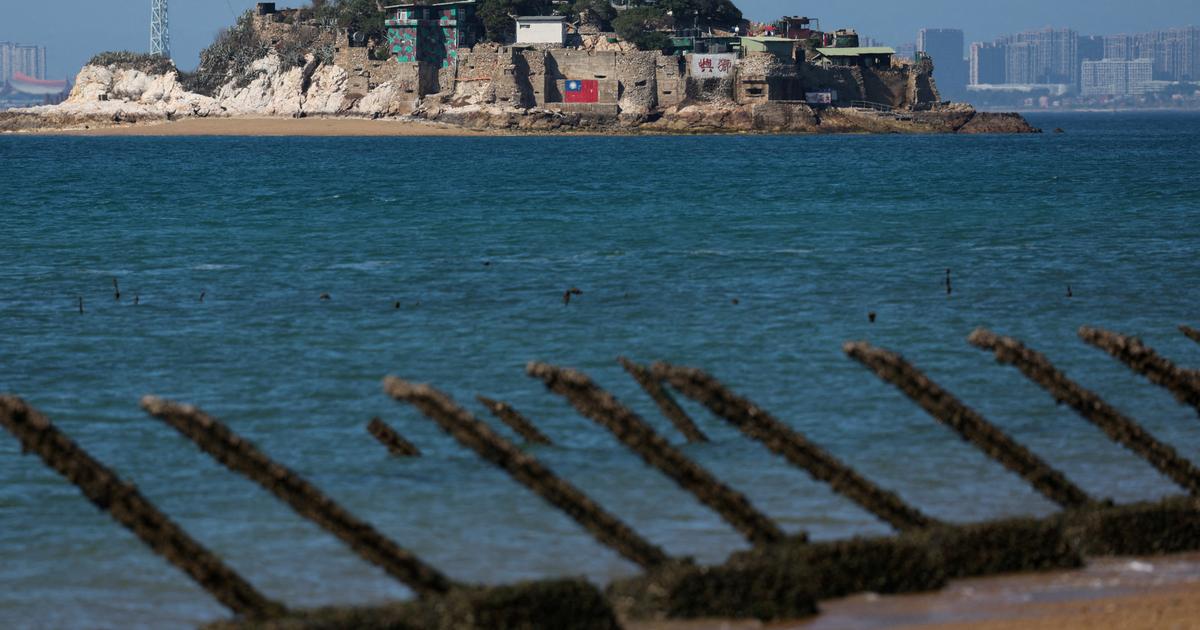Laurent Amelot, director of the Indo-Pacific Program at the Thomas More Institute, co-author of a note entitled “Can the status quo in the Taiwan Strait be maintained?” which has just been published.
To discover
PODCAST - Listen to the club Le Club Le Figaro Idées with Eugénie Bastié
If the election of William Lai as President of Taiwan on January 13 reaffirms the identity of the Taiwanese nation within the Chinese world, it opens a new phase of tension between the two shores of the Formosa Strait, the consequences of which , in the long term, will be far from negligible.
Beijing's unilateral decision to modify the trajectory of the M503 civil air route, near the median line, on January 31, and the fatal incident of February 15, confirm the outlines of a Chinese strategy of tensions below the threshold, uncertain displays.
Read alsoArmament, training... How Taiwan is preparing for an attack from China
On February 15, 2024, two Chinese fishermen drowned about a nautical mile off the Kinmen archipelago after being chased by the Taiwanese coast guard.
They had entered prohibited waters, in application of the Taiwanese doctrine on “restricted waters” set out in the 1990s, before trying to flee.
China immediately condemned the incident, accusing Taiwan's coast guard of using
"violent and dangerous"
methods with
"malicious intent
. "
Two days later, the Fujian Division of the Chinese Coast Guard announced plans to strengthen surveillance and patrols to more precisely enforce its legal jurisdiction around Kinmen.
This new approach led to another incident on February 19, 2024, in which the Chinese coast guard forcibly boarded and inspected a Taiwanese tourist ship bound for Kinmen.
These Chinese maneuvers could lead Taiwan to feel obliged to ban Chinese ships from traveling, increasing the likelihood of reciprocal bans
Laurent Amelot
This double Chinese maneuver calls into question a thirty-year
status quo
which has seen China not fully exercise its claimed jurisdiction over the Kinmen Islands.
China claims
de jure
jurisdiction over all Taiwanese territories.
But it has rarely applied it over the decades, which explains why fatal incidents at sea are so rare (the last known dates back to 1990) and boardings just as much, despite the still high tensions between Beijing and Taipei.
This maneuver also marks a change in
de facto
doctrine , since China now intends to exercise what it considers to be its full legal rights to interdict and inspect Taiwanese boats.
In the short term, it is likely that the Chinese coast guard will increase their operations in the region and that Beijing will encourage Chinese fishing boats to deploy there – the latter being well known for fulfilling a dual objective, within a zone logic. gray: mark out a territory and provide surveillance and monitoring capabilities.
This perspective, associated with frequent Chinese naval maneuvers, risks increasing the probability of identification and calculation errors, but also of accidents with Taiwanese military and civilian ships.
By announcing that it now intends to conduct law enforcement activities in a maritime geography controlled by Taiwan, China sends a broader message that it no longer respects maritime or air borders. of Taiwan (with the evolution of Chinese airspace doctrine associated with the unilateral modification of the trajectory of the M503 air route, on January 31, 2024, which restricts Taiwanese airspace).
Furthermore, these Chinese maneuvers could lead Taiwan to feel obliged to ban Chinese ships from circulation, increasing the likelihood of reciprocal bans, since each side now claims not only jurisdiction, but also the right to enforce its own law. .
If such bans result in more casualties, they will only exacerbate already high tensions between China and Taiwan.
Over time, the Chinese coast guard could use its jurisdictional power to enforce the “Beijing salami strategy,” that is, staking out maritime territory, protecting their fishing boats, and monitoring Taiwanese movements.
Laurent Amelot
In the medium and long term, China could be led to use its claimed jurisdiction to undermine Taiwan's control over the Kinmen archipelago, but also over that of the Matsu Islands.
Over time, China's coast guard could use its jurisdictional power to enforce the "Beijing salami strategy," meaning staking out maritime territory, protecting its fishing boats and monitoring Taiwanese movements, according to a approach similar to that practiced in the South China Sea against Vietnam and the Philippines.
This would involve potentially cutting off Taiwan from its strategically important archipelagos of Kinmen and Matsu, which host strategic Taiwanese military outposts and, given their location, are Beijing's priority target, as a prelude to the war that could break out between the China and Taiwan.
The new Chinese doctrine which is emerging will probably see a gradual increase in the presence of coast guard units, but also especially fishing boats likely to challenge, disrupt or interrupt Taiwanese resupply of these islands.
This prospect would strategically alter the
status quo
in the Formosa Strait to China's benefit, while depleting Taiwan's ability to patrol at sea and in the air to respond to incursions;
this strait, seen from Beijing, devolved from an international status to a national status, with all the consequences that this would imply in terms of freedom of navigation at sea and in the air, with regard to Chinese discursive and operational practice.
In order to prevent this type of scenario, Taiwan should think about new forms of active cooperation in terms of maritime and air security, but also territorial security, to respond to this challenge.
Japan should carefully observe Chinese maneuvers in the Formosa Strait, as well as associated doctrines, because after the Paracels, the Spratlys, then Kinmen and Matsu, the Senkaku Islands could be China's next active target.
This hypothesis could significantly alter the balance of power in the first chain of islands and put the American regional security architecture to the test.

